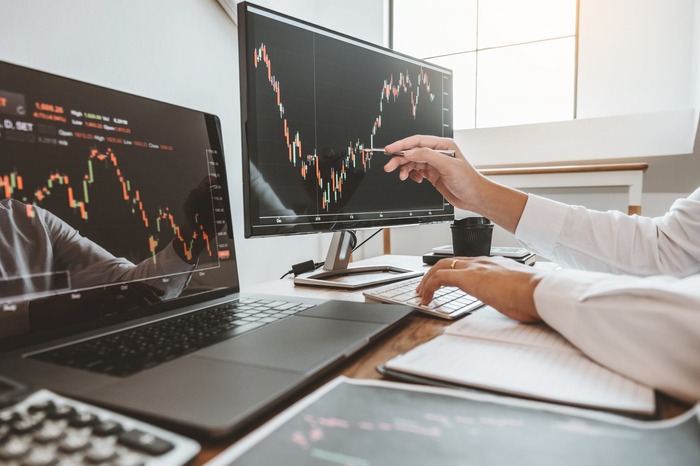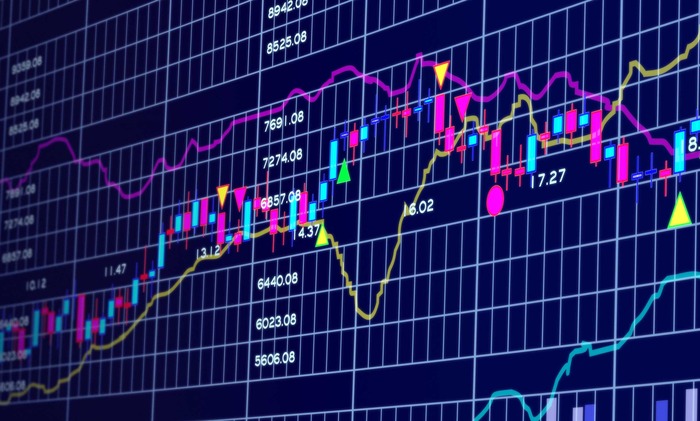Keeping up with the latest innovations is vital if you’re trying to make successful trades. Over the last decade alone, we’ve seen advances in mobile tech and intuitive tools that have revolutionized how the financial markets operate.
But these innovations wouldn’t be possible without the introduction of the internet. This was one of the biggest changes to impact trading.
The internet revolutionized the way we buy, sell, and trade goods and services worldwide. From the days of physical exchanges to the digital age of instant transactions, the net has been pivotal in the developments we’ve seen.
Trading pre-internet
Before the internet, trading was predominantly carried out manually. Traders were reliant on physical exchanges such as stock markets, commodity pits, and face-to-face negotiations.
Investors relied on brokers and financial advisors to execute trades. This frequently caused delays and high transaction costs. Information distribution was slow, and limited to newspapers, television, and specialized publications.
This lack of accessibility and transparency constrained trading opportunities. It favored institutional players and limited participation from individual investors.
The introduction of the internet
The advent of the internet was the beginning of a new era in trading. The in-person pits were out and online transactions were in. In fact, back in 2015, some of the oldest trading pits in America were closed as digital trading took over.
With the rise of online brokerages and trading platforms, more people gained access to financial markets for the first time. Real-time quotes, news feeds, and research tools became readily available, giving traders access to information that was once reserved for the inner circle of trading professionals.
Electronic communication networks (ECNs) emerged. These computerized networks made it possible to trade away from the floor, allowing direct access to exchanges and reducing intermediaries’ role in trade execution. The internet leveled the playing field and enabled anyone with an internet connection to participate in global markets.
Trading today
Today, trading has evolved into a digital experience, thanks to the internet. Online brokerages offer a range of investment products, from stocks and bonds to derivatives and cryptocurrencies. These are all accessible through intuitive platforms such as Tradu, and mobile apps.
With around 6.84 billion smartphones in the world, these apps make sense. Apps require an internet connection, and with so many people using smartphones, it makes sense to have trading apps that can be accessed on these mobile devices.
Additionally, automated trading algorithms execute orders swiftly, adjusting to changes identified by complex algorithms and market data analysis.
How the internet is evolving in trading
Looking ahead, the internet’s impact on trading is poised to deepen with the integration of artificial intelligence (AI). Machine learning algorithms analyze datasets to identify patterns and predict market movements. Also, AI-driven trading strategies automate decision-making processes.
Blockchain technology is another major factor. This digitized leger is used in cryptocurrencies and offers security protocols for this online world of trading.
There’s sure to be more to come in the year ahead. The internet has transformed trading, offering 24/7 access, going beyond geographical boundaries and time zones, and making it possible for more people to learn about the markets.


